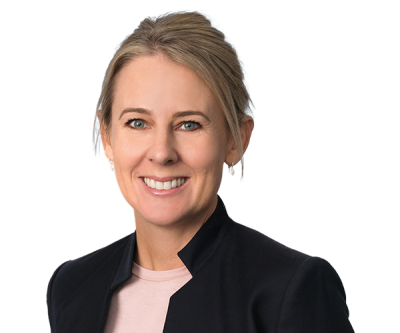
Buying property in the Cayman Islands
Buying property in the Cayman Islands has many benefits. With limited restrictions on foreign ownership of property, no local income, capital gains, or annual property taxes, year-round sunshine and beautiful crystal-clear waters, it is no wonder buyers continue to invest here. If you are considering buying on this paradise island, this guide provides a general overview of the process and first steps to be taken.
Registered land system
The Cayman Islands operates a registered land system with all property title information held centrally at the Cayman Islands Land Registry. This publicly available registry makes the process of buying and selling property relatively straightforward. Each piece of property is registered under its own block and parcel number and has its own land register stating the current registered owner and any rights/restrictions registered against the property. The Cayman Islands Land Registry also maintains a registry map which indicates the boundaries of each parcel of land. An attorney will check the land register to make sure the seller has authority to sell and report to you on any rights/restrictions that impact the property.
Title insurance
The Cayman Islands Government guarantees the entries on the land register which means that if there is an error or omission in the land register, you could be entitled to compensation. Therefore it is not generally considered necessary to obtain title insurance and it is not generally available to purchase in the Cayman Islands.
Ownership
Property in the Cayman Islands can be purchased in your personal name, through a company or trust. Any foreign company (incorporated outside of the Cayman Islands) is required to be registered as a foreign entity in the Cayman Islands before owning property. An attorney can advise on the best ownership structure for your needs and the corporate services team at Carey Olsen are on hand to assist with setting up land holding companies and providing registered office services.
Types of property tenure
Title to property can either be freehold, which means that the owner owns the land and any buildings on it forever, or leasehold where the owner of the freehold property grants a right to occupy the property by way of a lease for a fixed period of time. There can be rights to extend the leasehold term in certain circumstances. Property in Cayman is typically freehold however there are some areas along Seven Mile Beach that are leasehold.
Where the property is an apartment or condominium within a building, it is usual in the Cayman Islands for it to be subject to a registered strata plan. This means that each apartment or condominium is a strata lot and is subject to a set of strata by-laws which are legally binding on each owner. There will be a strata corporation which is made up of all the strata lot owners, and the strata corporation will manage the insurance of the building along with the repair and upkeep of the common areas. This extends to the outer walls, roof and foundations of the building. Each strata lot owner is responsible for maintaining the interior of their apartment or condominium. When buying a strata lot it is important to review the by-laws as they may contain rules and restrictions on the use of the property. It is also important to review the strata's insurance to make sure that it is adequate, the accounts of the strata to ensure that it is financially sound and to check if there are any reserves to cover future maintenance costs. You would also want to review the latest set of strata minutes to give you an idea on the current issues being discussed by the strata and any proposed future plans. An attorney can review this information for you and flag any issues.
Stamp duty
As mentioned above, there is no local income, capital gains, or annual property taxes payable for owning property in the Cayman Islands. There is a one time stamp duty tax payable to the Cayman Islands Government currently at 7.5% of the higher of the purchase price or the market value of the property. This one time tax is generally payable at closing by the buyer. Caymanian buyers are entitled to certain reliefs and exemptions and there is currently a stamp duty concession if you purchase property in Cayman Brac. An attorney will be able to advise you on the stamp duty amount payable at closing and if you are entitled to any reliefs or exemptions.
In addition to this, if you obtain financing to assist with the property purchase, there is a one time stamp duty payable to the Cayman Islands Government for secured loans/mortgages at 1% or 1.5% depending on the amount of the loan.
Financing
Financing options are available for local and overseas buyers and there are a number of reputable banks in the Cayman Islands to choose from. Most banks will require an attorney from their approved lending panel to act for them in relation to the preparation and registration of the finance documents. We at Carey Olsen would be able to make introductions and work with you and the bank, to obtain the financing package that is right for you.
Licensing
While there are no restrictions on foreign ownership, there can be certain licensing requirements that need to be obtained depending on the number of properties being purchased and the type of property (e.g. non-residential, short term rentals etc.). Specific advice should be sought from an attorney on the number/type of properties owned and any necessary licences that may be required.
Relocating and residency
The Cayman Islands offers a number of options for individuals who are looking to relocate with families. If you are considering relocating to the Cayman Islands, Carey Olsen offers a wide range of immigration and residency advisory services and our team can assist with all aspects of the relocation process.
First steps
When buying a property in the Cayman Islands we recommend you follow these first steps:
-
Speak with an attorney as early as possible to discuss your proposed property purchase and any plans to relocate/seek residency;
-
Consider appointing a real estate agent to assist you with finding the right property. We work with many of the agents on the islands and, where necessary, are able to make introductions;
-
Speak with an attorney before signing any sale contract. The attorney should be able to review the contract quickly and make sure it covers everything needed;
-
If you require bank financing, speak with one of the providers as soon as possible. The approval process can take some time and it is best to start this as early as possible;
-
Consider if a home inspection should be carried out. If necessary, we are able to make introductions to recommended home inspectors; and
-
Hire an attorney to deal with the closing. Buying a property is a big financial investment and can be even more overwhelming for overseas buyers who are unfamiliar with local laws and practices.
For the reasons outlined above, it is important you hire a local attorney to guide you through the process.
Further information
For further information on buying and selling property in the Cayman Islands, please reach out to the listed key contacts or contact [email protected]





